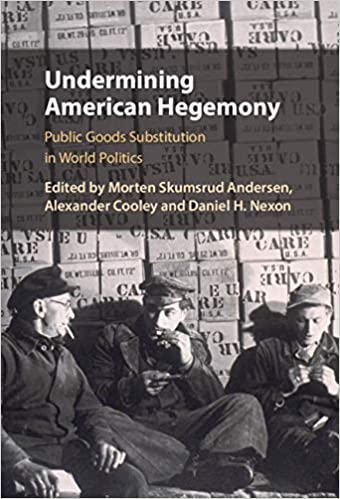Avoiding an Expensive and Counter-Productive “Great-Power Competition” Trap

Sometimes the best way to compete is… not to bother. As Alex Cooley and I argue in a new piece over at The National Interest, Washington can afford to chill out a bit when it comes to challenges from emerging powers.
Rather than reclaim global dominance by outspending and overpowering new contenders, U.S. planners should instead adopt a strategy of geopolitical “rope-a-dope:” they should simply not contest many of Beijing’s and Moscow’s costly efforts to expand—and manage—their networks of clients. China’s investments have brought much-needed funds for some valuable development projects, which is a net global good. But Beijing has also sunk money into “white elephants” and fueled local graft and corruption—leaving China with a questionable, or even negative, return on its investments in the face of disillusionment and political blowback among recipients.
This is part of the broader theme Alex and I have been pushing about “learning that it’s okay to lose.”
[As] the incumbent superpower, the United States must balance an extensive network of partnerships and alliances composed of states with diverse interests and identities. This is one of Washington’s major power-political advantages over rising powers like China. The downside is that relatively unencumbered challengers can, in geopolitical terms, float like a butterfly and sting like a bee. China and Russia can exploit frictions between states in the U.S. network and target those governments that remain outside of it. Beijing and Moscow can court autocrats who are disgruntled with Western pressure; support regimes, such as Iran, that view the United States as a threat; and pick off countries that Washington had considered too strategically unimportant to expend significant resources on, such as Tajikistan, Sudan, and Madagascar.
Does Chinese or Russian patronage suddenly make such countries strategically important? Only if U.S. officials convince themselves that to “win” the new era of competition they must always and everywhere compete.
In some important ways, our argument intersects with that of a 2017 book by my colleague, David M. Edelstein. In Over the Horizon: Time, Uncertainty, and the Rise of Great Powers [Amazon kickback link], he stresses the importance of time horizons in shaping the dynamics of power transitions. Alex and I are calling for the United States to adopt a medium-term approach to great-power politics – a difficult, but not impossible, task given the U.S. electoral cycle.
The piece is short and it’s not paywalled, so check it out.
